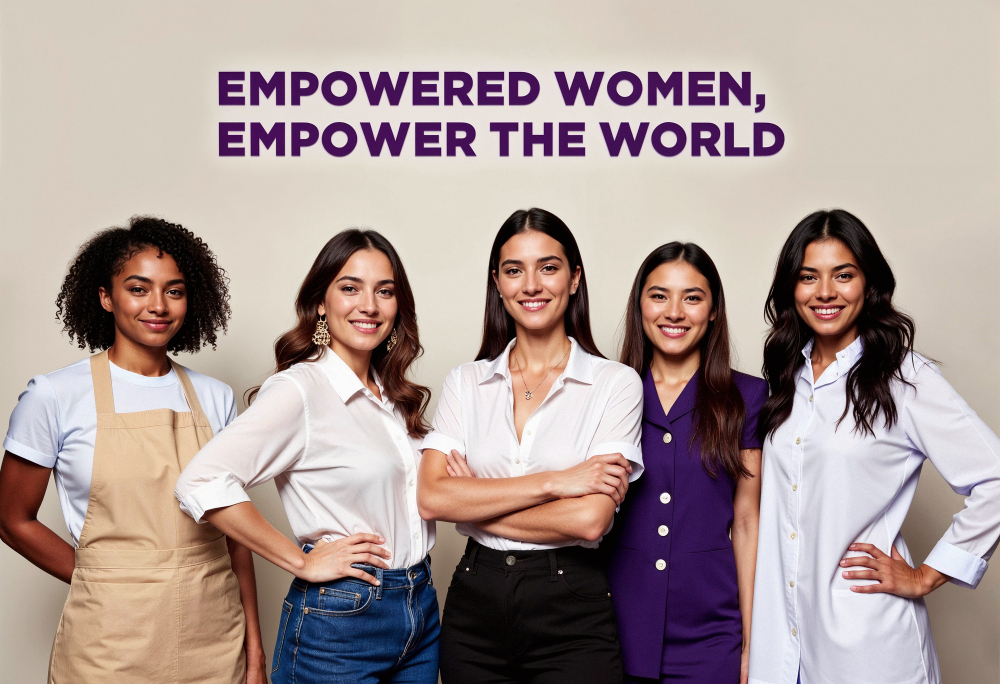Celebrating International Women's Day: A Look at Progress, Challenges, and Contributions
Lets celebrate the contribution of women and make a better place for them to help them continue providing better.


A Historical Overview of Women's Contributions
Women have played pivotal roles throughout history, significantly contributing to various domains such as politics, education, and the workforce. In ancient societies, women often held positions of power, albeit limited by the constraints of their time. For instance, in ancient India, figures like Rani Lakshmibai exemplified women's involvement in leadership and resistance against colonial rule. This tradition of women's participation in political processes can still be observed today, with women occupying high-ranking positions across the globe, including heads of state and government ministers.
The educational landscape has also transformed dramatically, reflecting women's progress and their drive for knowledge. Historically, women's access to education was often restricted. However, the 19th and 20th centuries marked significant shifts, with movements advocating for women's rights to education gaining momentum. Statistics reveal that, globally, the enrollment of girls in primary education increased from about 66 million in 2000 to over 90 million by 2020. In India, the Gross Enrollment Ratio (GER) for women in higher education rose from 10% in 2000 to well over 30% in recent years, indicating a gradual yet impactful change in attitudes toward women's education.
In the workforce, the participation of women has seen considerable improvement. According to the World Bank, women's labor force participation globally increased from 50% in the 1960s to around 60% in recent years. While challenges remain, particularly in terms of equal pay and representation, the growth of women in diverse sectors such as technology, healthcare, and business showcases their invaluable contributions to economic development. Approximately 40% of businesses worldwide have women in leadership roles, a notable increase that reflects ongoing strides toward gender equality.
Women's contributions have undeniably shaped societies and paved the way for future generations. Acknowledging these historical milestones allows us to appreciate the progress made while also recognizing the challenges that persist in the journey toward complete gender parity.
Trailblazers in Healthcare: Women Making a Difference
Throughout history, women have played a pivotal role in shaping the healthcare sector, often overcoming significant obstacles to make their invaluable contributions recognized. Notable figures such as Florence Nightingale revolutionized nursing and healthcare practices, establishing standards that influenced modern medical care. Her tireless advocacy for sanitary conditions during the Crimean War not only improved soldier health but laid the foundation for professional nursing as a respected occupation. Similarly, in India, figures like Begum Roquiah Sakhawat Hossain championed women's rights and healthcare reform in the early 20th century, focusing on the education and health of women, which has had lasting impacts.
In contemporary times, women continue to be trailblazers across various healthcare disciplines, from medicine to public health policy. Leaders like Dr. Devi Shetty have transformed cardiac care in India, making it accessible to underserved populations while fostering medical innovation. Dr. Tedros Adhanom Ghebreyesus, Director-General of the World Health Organization, has also acknowledged the contributions of women in healthcare, recognizing that gender equality is essential for achieving global health goals. Furthermore, female scientists and researchers are at the forefront of medical breakthroughs, driving advances in areas like biotechnology and pharmaceuticals.
Despite the strides made, women in healthcare still encounter challenges, ranging from gender bias in leadership roles to workplace harassment. These barriers not only hinder personal progress but also affect the broader healthcare ecosystem, which benefits from diverse perspectives and leadership styles. Organizations around the globe are increasingly recognizing the importance of gender diversity in healthcare, initiating programs aimed at fostering inclusive environments that support women’s advancement. As we celebrate International Women's Day, it is crucial to acknowledge these female trailblazers and the systemic changes needed to empower future generations of women in healthcare. Their contributions continue to inspire and pave the way for equitable healthcare systems worldwide.
Current Challenges Faced by Women Today
Despite significant progress in recent years, women across the globe continue to encounter various challenges that hinder their pursuit of equality and empowerment. One of the most pressing issues is domestic violence, which remains a pervasive threat. According to the World Health Organization (WHO), approximately one in three women worldwide has experienced physical or sexual violence, predominantly from an intimate partner. This shocking statistic highlights the urgent need for effective interventions and support systems to protect women and foster safe environments.
Mental health disparities further complicate the situation for women. Research indicates that women are more likely to suffer from anxiety and depression compared to their male counterparts, often exacerbated by societal pressures and expectations. Women frequently bear the dual burden of professional and domestic responsibilities, leading to heightened stress levels and a diminished capacity to prioritize their mental well-being. This mental health crisis underscores the importance of accessible mental health resources aimed specifically at women.
The gender pay gap also remains a critical issue that affects female workers worldwide. According to the Global Gender Gap Report from the World Economic Forum, women globally earn only about 63% of what men earn for similar work. This disparity is not only a reflection of systemic inequality but also perpetuates financial insecurity for women, limiting their opportunities for advancement and independence. Furthermore, societal expectations often confine women to traditional roles that stifle their professional aspirations and economic contributions.
Ultimately, these ongoing challenges—including domestic violence, mental health disparities, and wage inequality—illustrate the substantial barriers women face in achieving full equality. Addressing these issues requires concerted efforts from governments, organizations, and society as a whole to create a supportive environment that empowers women and promotes their rights.
Pathways to Improvement: Empowering Women for Tomorrow
Empowering women is essential for fostering equality and creating a more just society. To address the myriad challenges faced by women today, various strategies can be employed, focusing on policy changes, educational initiatives, and community programs that collectively enhance women's rights and participation in all spheres of life.
One significant pathway to improvement is through policy reform that supports women's rights. Governments can implement and enforce legislation aimed at eliminating gender discrimination in the workplace, ensuring equal pay for equal work, and providing parental leave policies that support both women and men. Additionally, advocating for women's representation in leadership roles within both public and private sectors is crucial. Strategies such as quotas or targeted mentorship programs can help women gain access to decision-making positions where their voices can influence policies affecting them directly.
Education is another critical area for empowerment. Increasing access to quality education for women and girls can dramatically change their socio-economic status and enhance their contributions to society. Initiatives that focus on STEM (science, technology, engineering, and mathematics) education can encourage women to enter fields that have traditionally been male-dominated, thus broadening their career opportunities. Moreover, educational programs that include financial literacy and entrepreneurship can equip women with the skills necessary to start their businesses and achieve economic independence.
Community programs also play a vital role in promoting gender equality. Grassroots organizations can create supportive environments where women can share their experiences, build networks, and access resources. Workshops, support groups, and local initiatives centered around women's health, safety, and personal development can foster a sense of community and empowerment. Furthermore, individuals and organizations can advocate for women's rights by participating in local campaigns, volunteering, and raising awareness about the issues that women face.
In conclusion, a multifaceted approach that combines policy reform, educational initiatives, and community engagement is crucial for empowering women and fostering a more equitable society. By working together, we can create a brighter future for women, ensuring their rights, voices, and contributions are recognized and valued.
